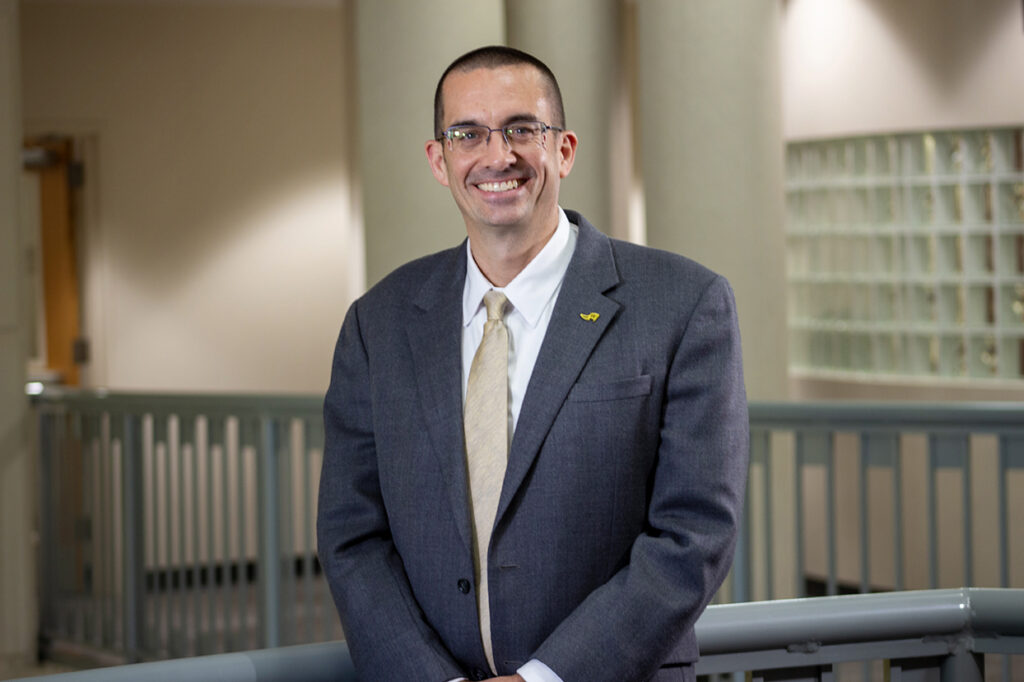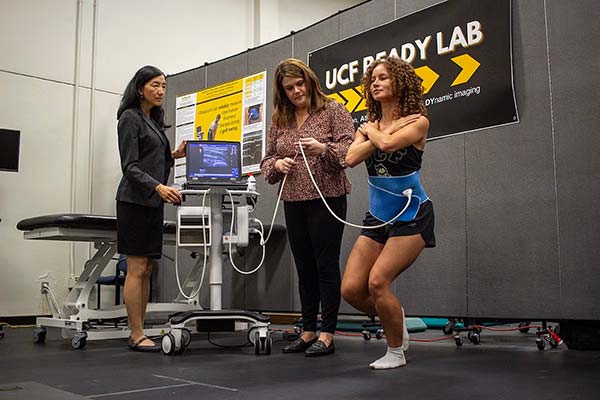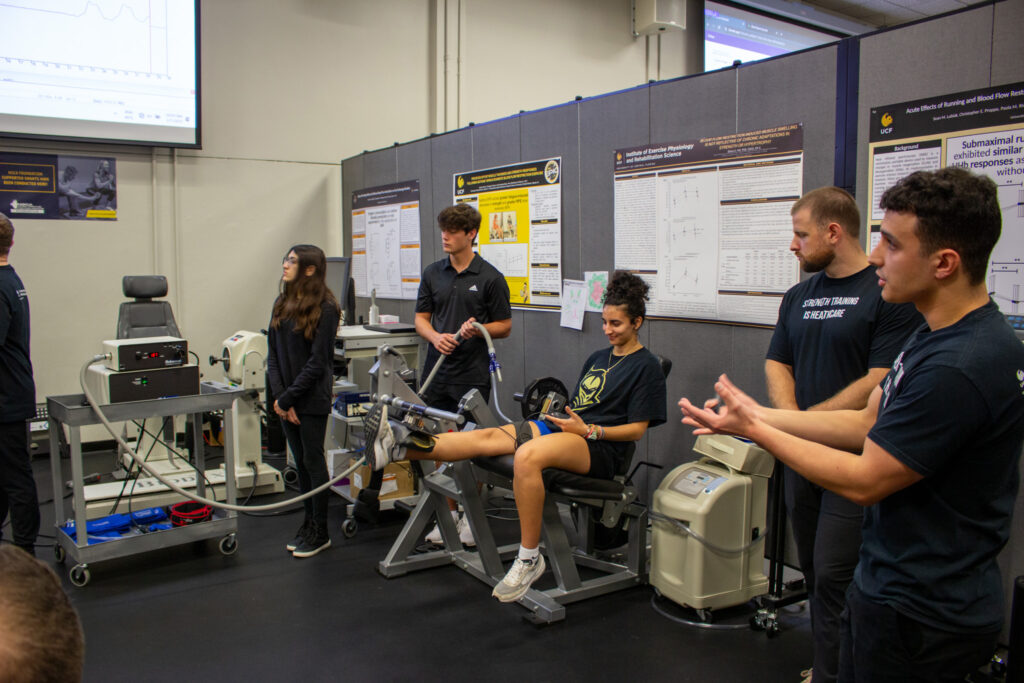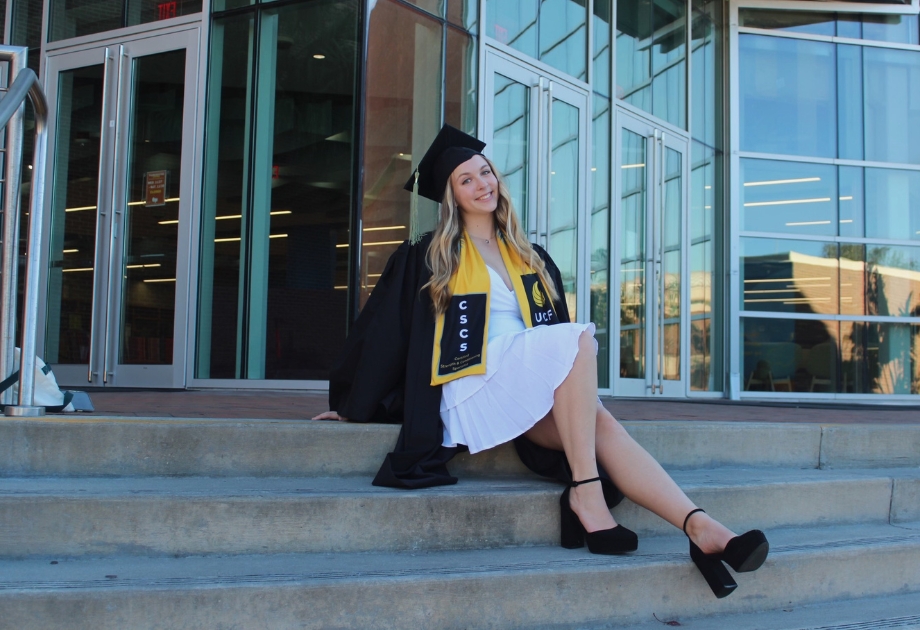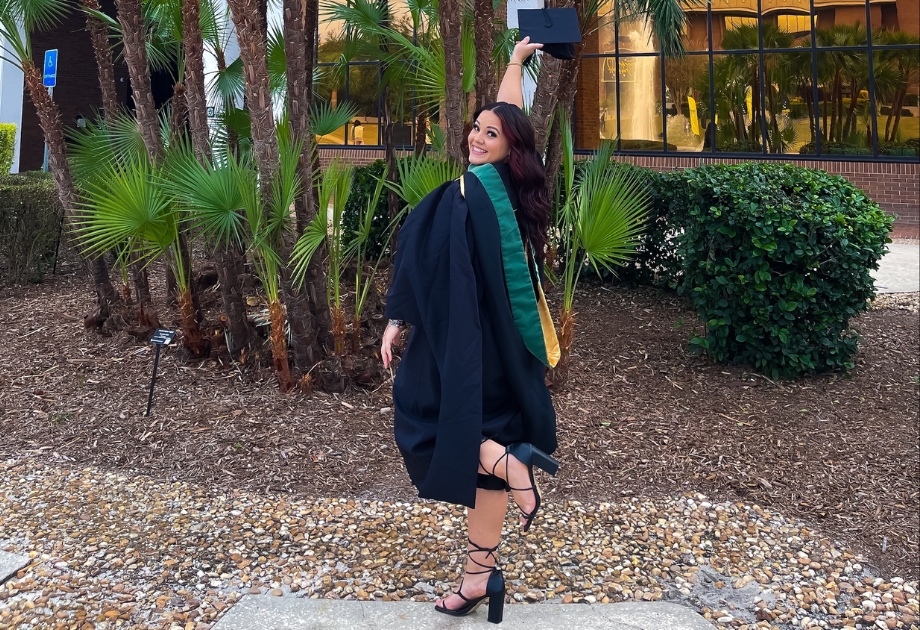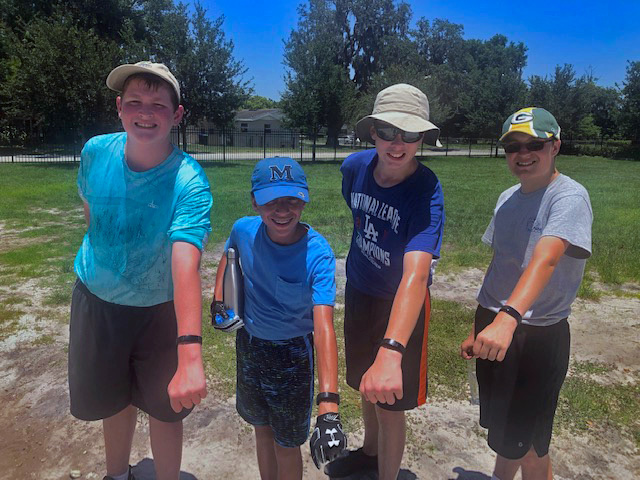
When Jeanette Garcia, an assistant professor in the School of Kinesiology and Physical Therapy was in grade school and high school in Pittsburgh, she noticed that students were split into two groups when it was time for them to participate in physical education.
Students who were on the autism spectrum left with an instructor to go elsewhere, Garcia said. Those students were not allowed to participate in physical activity.
“Back then, people didn’t realize what these children could do,” Garcia said.
Children who have Autism Spectrum Disorder are generally “hesitant to try new things,” Garcia said.
But when physical activity is combined with technology, “the kids are begging to come back for more.”
Paragon Students Thrilled to Receive Fitbits
Earlier this year, Garcia partnered with The Paragon School in Orlando, a private school that “exclusively serves higher functioning children on the autism spectrum,” according to its website.
Through a grant, Garcia provided Fitbits to approximately 45 students at the school. She knew anecdotally that typically developing students (i.e., children who are not on the spectrum) will use Fitbits for a few weeks and then lose interest.
Garcia believed that the repetition and structure to which children on the spectrum are drawn made the Fitbit seem like a natural choice to measure their activity levels.
“The children could count on the Fitbit,” Garcia said. “It was not overly stimulating, and it also brought out some friendly competitiveness.”
Research is Part of Multiyear Grant Application
Garcia and her team are gathering data in preparation for applying for a multi-year grant from the National Institutes of Health. They are establishing feasibility for the grant by measuring behavior outcomes of different physical activity interventions for children on the spectrum.
Last year, Garcia partnered with UCF CARD to bring judo lessons to children on the spectrum. The children wore activity trackers, but they were not able to see the data. Still, they enjoyed the activity very much, and Garcia accumulated significant data.
With the addition of the Fitbits this year, Garcia said the activity level of the children has appeared to increase across the board.
Paragon Students Ideal Match for Activity Trackers
“The universe is on technology,” said Helen Leonard, founder and head of The Paragon School. When Garcia introduced the accelerometer (a simple activity tracker) to her students in advance of the Fitbits, Leonard said the students and their parents were excited.
The one-week test showed “near-perfect compliance,” Leonard said. Their activity level had surpassed their expected activity level. She believes the results were because of a combination of the technology and the competitive nature of the students.
“The parents were thrilled,” Garcia said. The Fitbits were integral for inspiring conversations and also helped improve communication deficits.
“The kids were giving each other high-fives when they reached a certain number of steps on the Fitbits,” Garcia said. In general, Garcia said, children on the autism spectrum do not like engaging in physical contact, so this particular behavior was unexpected.
When the children in Garcia’s judo study began grappling with each other (gripping and seizing the opponent), they were also able to overcome their avoidance behaviors.
Next Steps
Garcia has plans to introduce another component of her study to the Paragon students. The school has a vegetable garden that their students use as part of their curriculum; Garcia is working with UCF’s Eunkyung “Muriel” Lee, an assistant professor in the Department of Health Sciences. Lee, who is also a clinical dietitian, wants to teach the children how to prepare healthy meals.
Lee said she will plan the menu according to what is harvested at the time of the class. For many of the children, it will be their first time trying new foods.
Their heightened sensory awareness can make new foods unpalatable; children on the spectrum tend to stick with the same foods.
“First-time experiences with food are very important,” Lee said.
Earlier this year, the students got to taste their first radish, said Paragon’s Helen Leonard. The students cultivated and harvested the radishes and the teachers explained the different parts of the radish and the way it might taste. Leonard, who said that she did not like radishes and had not had a radish in years, took the first bite to inspire her students.
“It wasn’t bad,” Leonard said. “And the students loved trying the exotic food.” The day was capped off with the “Biggest Radish” contest.
Lee will work with children and their parents to create simple meals – such as salads and steamed vegetables – that they can prepare at home. First, she will demonstrate how to cook, and then, the students will cook with their parents.
Garcia will also be collecting data from the cooking class, such as body assessments, food intake and composition, as well as a pre- and post-questionnaire on their sustainable skills and nutritional comprehension.
“The students are so excited to be partnering with UCF,” Leonard said. “It makes them feel so valued to be contributors to Dr. Garcia’s research.”

